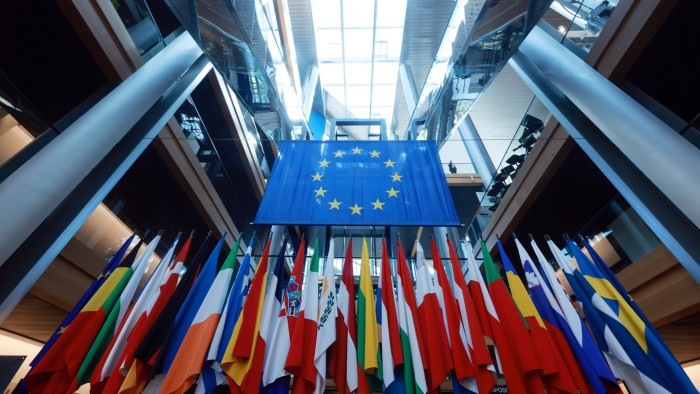Unlock the Editor’s Digest for free
Roula Khalaf, Editor of the FT, selects her favourite stories in this weekly newsletter.
The writer is co-founder and executive chair of firstminute capital, Founders Forum and Founders Factory
The future is written by entrepreneurs. Europe needs more of them to choose it as a place to grow and scale in a world of shifting alliances and economic challenges.
Yet, a recent investment experience highlighted a critical weakness in achieving that: the fragmented and burdensome regulatory environment that stifles not just our start-ups but innovation and growth across the entire European economy.
We were excited to make a small investment into an ambitious Austrian climate-tech start-up, until we found ourselves lost in a bureaucratic labyrinth with more twists and turns than a mountain goat’s hiking trail.
Video calls with notaries to verify every signature (and there were lots). A ludicrous call with multiple pricey lawyers who had to read lengthy investment documents out loud — despite us having already reviewed the paperwork ourselves.
All this for a small funding round. It was completely disproportionate. Had we been investing in the UK or US, it would have taken minutes — sign digitally, wire the money, done. But in Austria? Weeks of legal acrobatics. After enduring this madness, our lawyers offered one small crumb of consolation: “If you think Austria is bad, Germany is worse.”
This isn’t just an annoyance — it’s an existential problem for Europe’s scale-up ecosystem. For our start-ups to compete globally, they need to be truly pan-European — able to raise capital, operate and scale seamlessly across borders. Right now, that’s simply not the case.
From obtaining travel licences to navigating byzantine HR systems (an area in which France is particularly difficult to navigate), stock option laws, and company formation rules — every country adds layers of friction.
In helping to build lastminute.com, I encountered these roadblocks first-hand. The only way to scale quickly was to buy companies across multiple geographies, because dealing with local regulations was such a costly headache.
Meanwhile, in the US, start-ups can scale relatively effortlessly from New York to California, raising capital and hiring talent seamlessly under one predominant legal framework. Perhaps it’s not surprising that US start-ups raise more than double the funding of their European counterparts. If more European companies could operate seamlessly across the continent, more would probably win — and merit — larger funding rounds.
But the good news is that thousands of EU entrepreneurs and investors are rallying behind a call for a pan-European legal framework for start-ups — which would standardise the administrative processes, from company formation to investment structures. The proposal, dubbed “EU Inc”, has been backed by the founders of top tech companies such as Stripe, Supercell and Wise. This isn’t a new problem. Back in 2016, we saw the need for a European start-up passport and rallied many leading EU founders behind the idea.
Then came Brexit. But now there might be both the will and the way to make it happen. And the economic case is clear.
What’s especially interesting about this proposed framework for us, is that it would sit outside the existing EU system as a “28th Regime” — a parallel, voluntary legal framework that any country, including the UK, could theoretically opt into.
It’s an opportunity for British start-ups to tap into the market and work more easily across the EU — and vice versa — without reopening the Brexit debate. It is a low-risk, high-reward move that fosters economic co-operation while keeping the UK’s independence. Maybe it’s even worth a spot on the agenda for the upcoming EU-UK summit in May.
For better or worse, some entrepreneurs are now talking about MEGA — or “Make Europe Great Again”. While misappropriating Trump’s language may not be the best strategy, the sentiment is spot on.
Europe needs to be a more attractive place to build businesses, and that starts with reducing friction for founders, unlocking capital and making it easier to scale. Economic bonds lead to social bonds. And in a time of increasing division, we should be working towards greater economic and entrepreneurial unity — not adding more barriers.
Rohan Silva, founder of Second Home and the Libreria bookshop, contributed to this piece
Read the full article here

